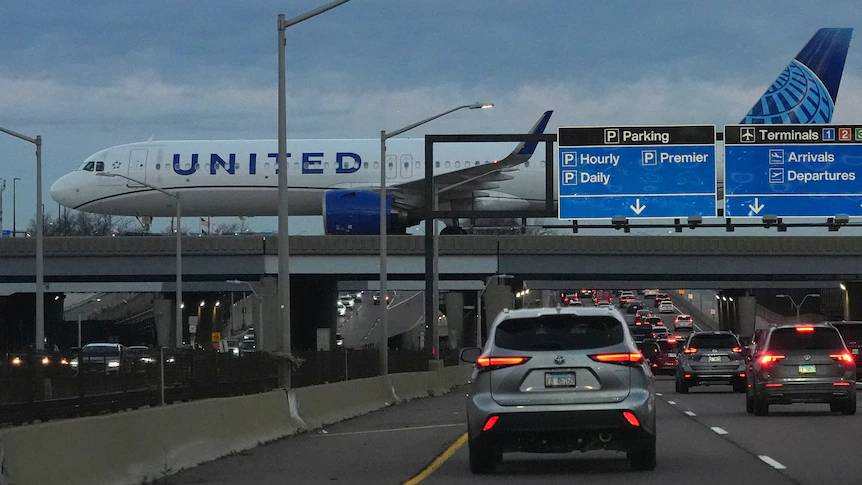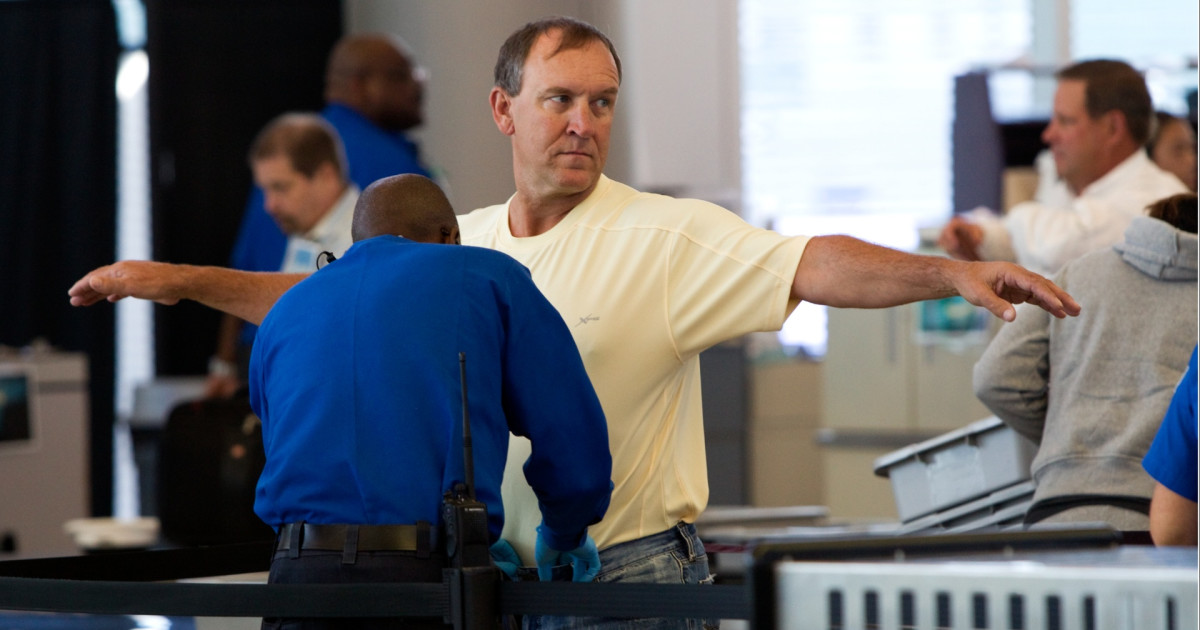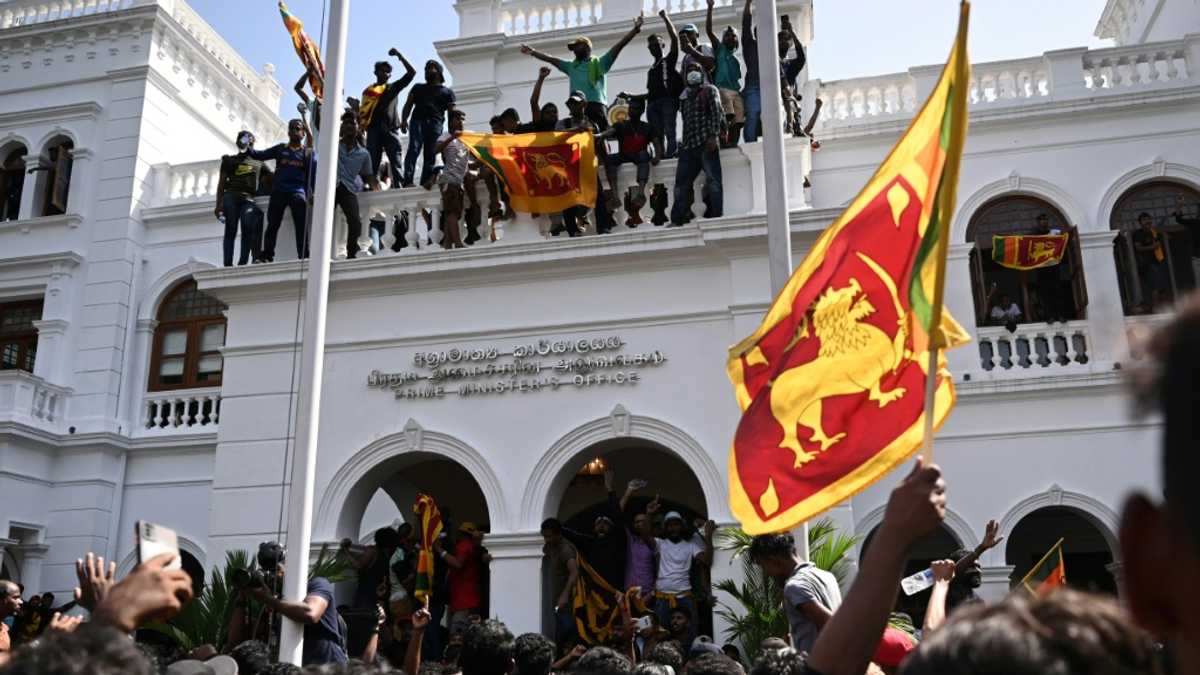Copyright abc

United States aviation authorities are bracing for widespread travel disruption when as many as one in 10 domestic flight services are cut from daily operations at 40 major airports amid the ongoing government shutdown. The halt to government work, which has become the longest political standstill in US history, has seen air traffic control staff members not coming to work because they are not being paid. Their absences have caused flight delays, with more than 3.2 million passengers impacted nationwide. The Federal Aviation Authority (FAA) this week said it planned to reduce national air traffic in the US by 10 per cent in "high-volume" markets from 6am Eastern Time on Friday (9pm Friday AEST) to maintain travel safety. The Trump administration's Transportation Department later released a separate statement saying it only planned to cut flight numbers by 4 per cent, rising to 5 per cent on Saturday, 6 per cent on Sunday and up to 10 per cent by next week, Reuters reported. So, what does that mean for the tens of thousands of domestic flights set to be cancelled, their passengers and the viability of air travel in the US in the immediate future? Here's what we know. Firstly, why did the US government shut down? The US government has been subject to a political pause for 37 days, sparked on October 1 by furious Democrats, who are demanding President Donald Trump begin serious negotiations amid a stalemate over expiring healthcare subsidies. The shutdown has led to mass closures of federal agencies, left thousands of workers without pay and millions more without money to buy food. The FAA has been slowing or temporarily halting air traffic at certain airports across the US whenever a safety concern arises due to a shortage of tarmac controllers, at times leading to hours-long travel delays. While some air traffic controllers are expected to continue working through the planned reductions, there have been instances of staff absences at airports across the country that have also led to flight disruptions. Transportation Secretary Sean Duffy has predicted that an ongoing shutdown could result in travel chaos, and said financial pressures on 13,000 air traffic controllers and 50,000 Transportation Security Administration (TSA) agents working without pay would only continue to intensify. "If you bring us to a week from today, Democrats, you will see mass chaos," he said on Tuesday. Which airports will be impacted by flight cuts? Bryan Bedford, the administrator of the FAA, said this week that reductions to domestic flights would be implemented to maintain air safety during a traditionally busy part of the year for travellers. The Airlines for America trade group last year projected more than 31 million passengers planned to fly on US carriers over the November Thanksgiving holiday period, in a record increase from the year before. "When we see pressures building in these 40 markets, we just can't ignore it," Mr Bedford told a press conference. "If the pressures continue to build even after we take these measures, we'll come back and take additional measures." A list of impacted airports was released by the FAA on Thursday, local time. The Associated Press reported that impacted major travel hubs included airports in Virginia, Texas, New York, California and Florida. Earlier in the week, aviation analytics firm Cirium predicted flight reductions in 30 of the US's busiest airports would result in as many as 1,800 commercial flights and more than 268,000 airline seats being impacted. At least 760 flights scheduled for Friday were already cancelled by late on Thursday, according to the Flight Aware website — which equated to more than four times the number of cancellations the day before. American Airlines, the US's largest commercial carrier, said in a statement on Wednesday that it expected the "vast majority" of its customers to be unaffected by the reductions but also cut about 220 flights. "As schedule changes are made, we will proactively reach out to customers who are impacted. As always, we encourage all customers to check their flight status on aa.com or the mobile app," the statement said. Southwest, the country's largest low-cost domestic carrier, said it was evaluating how the reductions would affect its schedule but confirmed cuts to about 120 services, while the Association of Flight Attendants-CWA, which represents 55,000 flight attendants at 20 airlines, called the shutdown "cruel attacks on all Americans". United Airlines would cut 4 per cent of its flights over the weekend based on guidance from the FAA, company spokesperson Josh Freed said. Delta Airlines said it would cancel up to 170 flights scheduled for Friday. The FAA directs more than 44,000 flights daily, including commercial passenger flights, cargo planes and private aircraft. Airlines can face a $US75,000 ($115,000) fine for each flight operated over the limit, the FAA said. The agency also threatened to impose cuts if carriers did not make cuts equitably across communities. US-based airlines are used to dealing with cutting thousands of flights on short notice during severe weather, but the difference now is that these cuts during the shutdown will last indefinitely until safety data improves. What is the advice for travellers? The Australian government's Smartraveller website says travellers should expect "flight delays, longer queue times at a number of airports and increased processing times to issue US visas" as a result of the shutdown. "Check with your nearest US Embassy/Consulate or your travel provider to see if your travel plans have been affected," an advisory on the website says. American Automobile Association spokesperson Aixa Diaz says some travellers in the US are already considering adjusting their plans and driving to destinations, but acknowledged that it was not an option for everyone. She advised that people with booked trips tried to stay informed by downloading their airline's mobile app and monitoring it for updates to planned travel, checking airport websites for the latest information, and allowing for plenty of time at airports before a flight. "It's frustrating for travellers because there's not much you can do. At the end of the day, you either fly or you don't," she said. "You go on your trip and you roll the dice and you show up at the airport, or you choose to drive. So you don't have that many options." Barry Biffle, the head of low-cost carrier Frontier Airlines, also recommended travellers buy backup tickets with another airline to avoid being stranded. United, Delta Air Lines and American Airlines have all said that they would offer refunds to passengers who opted not to fly, even if they purchased tickets that were not normally refundable. How could Australian travellers be impacted? It will depend on the flight they take, according to Flight Centre CEO Graham Turner. "Generally, international flights will be protected, from what we believe," he told the ABC. "Assuming people are prepared for some disruption, the chances are that the international flights will be the last to be disrupted — that's the advice that we're giving to our customers in the States. Mr Turner also said Flight Centre would advise business customers, which made up most of the company's consumer base, to be aware that there would be fewer available seats during peak-hour services, longer delays at major airports and the chance of "reduced redundancy" — meaning a person's chances of booking onto another plane after a cancelled flight would be more difficult due to higher demand. What might happen next to travel in the US? Major US airlines were this week still assessing how significantly the ongoing shutdown and reductions to flight numbers would impact their customers. Airlines for America, which represents major carriers such as Delta United, American and Southwest, said its members were trying to understand the next steps. "We are working with the federal government to understand all details of the new reduction mandate and will strive to mitigate impacts to passengers and shippers," it said. Airlines have repeatedly urged an end to the shutdown since it began, and many major carriers have suffered significant dips in their share prices. Some airlines say the shutdown has not impacted their overall business, but have warned bookings could drop if the shutdown drags on. On Tuesday, Mr Bedford said up to 40 per cent of air traffic controllers at the FAA's 30 largest airports were failing to show up for work. On Wednesday, that led to more than 2,100 flights nationwide experiencing delays. Mr Duffy said the FAA wanted to take a proactive approach to solving the issue, instead of reacting after an aviation disaster, such as the deadly mid-air collision in January between a commercial jet and a military helicopter near Ronald Reagan Washington National Airport in Virginia. "We learned from that, and so now we look at data and — before it would become an issue — we try to assess the pressure and try to make moves before there could be adverse consequences," he said. "That's what's happening here today."



